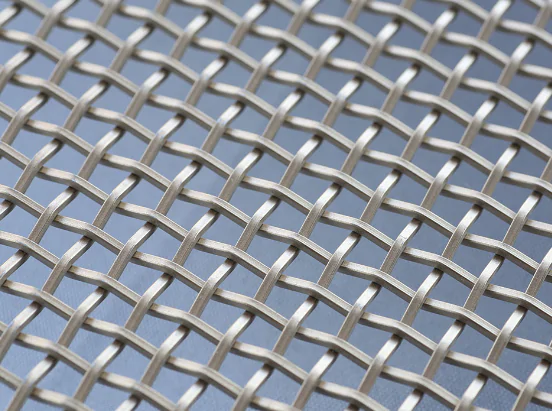Introduction
Are you looking for wire mesh but not sure which one to choose? Choosing the right wire mesh for your specific needs can be overwhelming, but it’s essential to ensure the project’s success. In this guide, we will provide useful tips and information to help you select the appropriate wire mesh.
From wire mesh size to material type, we’ll walk you through the essential considerations to keep in mind when selecting wire mesh. You’ll also learn about the various wire mesh types and their applications, making it easier to identify the best option for your project.
1. Basics of wire mesh

Wire mesh is a versatile material made from interlocking metal wires that are arranged in a grid-like pattern. It is commonly used in construction, agriculture, mining, and industrial settings to provide strength, stability, and protection.
Wire mesh comes in various sizes and materials, including steel, stainless steel, aluminum, copper, and brass. One of the primary features of wire mesh is its flexibility.
It can be shaped and molded to fit any desired shape, making it ideal for a wide range of applications. Wire mesh is also highly durable and resistant to wear and tear, making it suitable for use in harsh environments. Additionally, wire mesh can be easily cut and shaped to suit specific requirements, making it a highly customizable material.
Wire mesh offers numerous benefits over other materials such as solid sheets of metal or plastic. For instance, wire mesh provides improved ventilation and air circulation, allowing for better heat dissipation and reducing the risk of overheating. Wire mesh can also be used to filter and screen materials, making it ideal for use in food processing, pharmaceuticals, and other industries where contamination is a concern.
Another key benefit of wire mesh is its ability to provide enhanced security and safety. Wire mesh can be used to create barriers and enclosures to prevent unauthorized access and protect valuable equipment or property. In agriculture, wire mesh is commonly used to create fences and enclosures to keep livestock and crops safe from predators.
Wire mesh is also an excellent material for use in construction and infrastructure projects. It can be used to reinforce concrete structures, providing added strength and stability. Wire mesh can also be used to create support structures for roadways and bridges, or as a protective layer over pipes and cables.
In addition to its practical applications, wire mesh can also be used for decorative purposes. Wire mesh panels can be used to create visually striking designs, adding a unique touch to architecture and interior design.
Overall, wire mesh is a highly versatile material that offers numerous benefits over other materials. Its flexibility, durability, and customization options make it ideal for use in a wide range of applications, from construction to agriculture to decorative purposes.
The wire mesh provides enhanced safety and security, improved ventilation, and air circulation, and can be used for filtering and screening materials. With its wide range of benefits, wire mesh is an indispensable material for any industry that requires strength, stability, and protection.
2. How to choose the right wire mesh for applications

Specify the requirements
The first step in choosing the right wire mesh is to identify the specific requirements for your application. Consider the purpose of the wire mesh and the type of environment it will be used in. This will help you determine the strength, durability, and other properties required of the wire mesh. You should also consider any regulatory or safety requirements that may be relevant to your application.
Choose the material
Once you have identified the requirements for your wire mesh, the next step is to choose the material. Wire mesh can be made from a variety of materials, including steel, stainless steel, aluminum, copper, and brass.
Each material has its unique properties and choosing the right one will depend on the specific requirements of your application. For example, if corrosion resistance is a concern, stainless steel may be the best choice.

Choose the size and diameter
After choosing the material, you need to determine the size and diameter of the wire mesh. The size and diameter of the wire mesh will depend on the application requirements and the specific properties of the material chosen.
The size of the mesh is determined by the number of openings per inch, while the diameter of the wire is determined by the thickness of the wire. The size and diameter of the wire mesh will affect its strength and durability, so it is important to choose the right size and diameter for your application.
Consider the environment
Finally, you need to consider the environment in which the wire mesh will be used. The environment can have a significant impact on the performance of the wire mesh, so it is important to choose a material that is suitable for the specific environment.
For example, if the wire mesh will be used in a corrosive environment, you should choose a material that is resistant to corrosion. Similarly, if the wire mesh will be used in an environment with high temperatures, you should choose a material that can withstand those temperatures.
Conclusion
Selecting the right wire mesh can make a significant difference in the success of your project. By understanding the different types and factors to consider, you can confidently choose the appropriate wire mesh for your specific needs.


